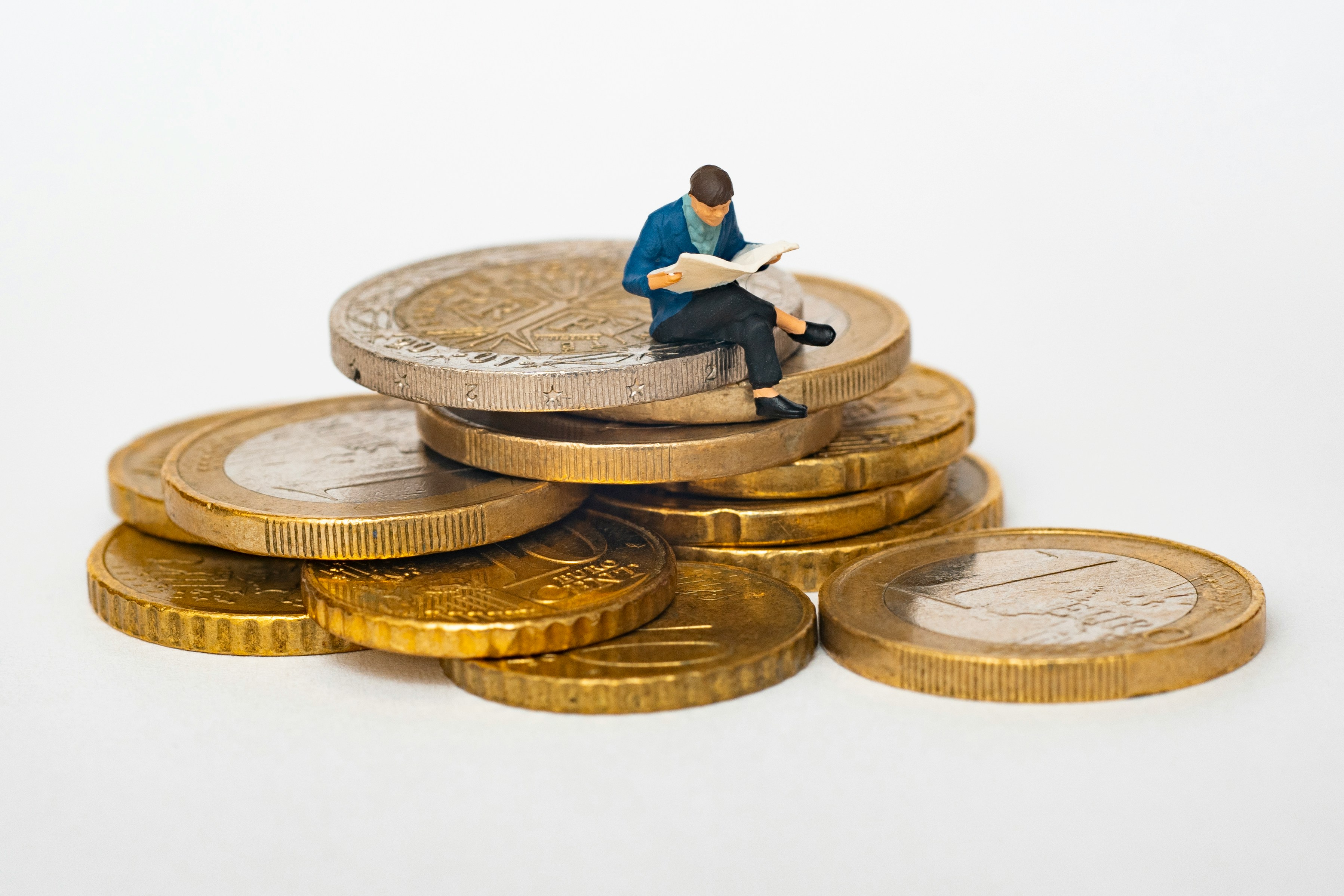Saving for emergencies and retirement
Saving for emergencies and retirement is essential for financial security. Having an emergency fund can help you cover unexpected expenses, such as a job loss or medical emergency. Retirement planning is important for ensuring that you have enough money to live comfortably in retirement.
Saving for Emergencies
An emergency fund is a savings account that is set aside to cover unexpected expenses. It is important to have an emergency fund so that you do not have to go into debt or sell assets to cover unexpected costs.
A good rule of thumb is to have at least three to six months of living expenses saved in your emergency fund. This may seem like a lot of money, but it is important to have a cushion to fall back on in case of an emergency.


There are a few different ways to save for an emergency fund.
One option is to set up a recurring transfer from your checking account to your savings account each month. This way, you will save money without even having to think about it.
Another option is to save up a certain amount of money before you spend it. For example, you could decide to save 10% of every paycheck until you have reached your emergency fund goal.
Once you have saved enough money for your emergency fund, it is important to keep it in a safe and accessible place. You may want to consider opening a high-yield savings account, which offers a higher interest rate than traditional savings accounts.
Saving for Retirement
Retirement planning is the process of saving and investing money for your retirement years. It is important to start saving for retirement early, so that you have enough time for your money to grow.
There are a few different ways to save for retirement. One option is to contribute to a 401(k) plan, which is a retirement savings plan offered by many employers. 401(k) contributions are deducted from your paycheck before taxes, which can reduce your taxable income.


Another option is to contribute to an IRA
Which is a retirement savings plan that can be opened by anyone, regardless of employment status. IRA contributions are made after taxes, but you may be eligible to deduct your contributions on your tax return.
If you are not sure how much to save for retirement, you can use a retirement calculator to estimate how much money you will need to live comfortably in retirement. A retirement calculator will take into account factors such as your age, income, expenses, and desired retirement age.
Once you have saved enough money for your emergency fund, it is important to keep it in a safe and accessible place. You may want to consider opening a high-yield savings account, which offers a higher interest rate than traditional savings accounts.
Some common investment options include:
Stocks: Stocks are shares of ownership in a company. Stocks can be a good way to grow your money over time, but they are also the riskiest type of investment.
Bonds: Bonds are loans that you make to a government or corporation. Bonds are less risky than stocks, but they also offer lower returns.
Mutual funds: Mutual funds are baskets of stocks, bonds, and other investments. Mutual funds are a good way to diversify your portfolio and reduce your risk.
ETFs: ETFs, or exchange-traded funds, are similar to mutual funds, but they trade like stocks on an exchange. ETFs can be a good way to invest in a specific market sector or index.

When choosing investments, it is important to consider your risk tolerance and time horizon. Your risk tolerance is how much risk you are comfortable taking with your money. Your time horizon is how long you plan to invest.
If you have a long time horizon and a high risk tolerance, you may want to invest in stocks. If you have a short time horizon or a low risk tolerance, you may want to invest in bonds or mutual funds.
Here are some tips for saving for emergencies and retirement:
Start saving early. The earlier you start saving, the more time your money has to grow.
Save regularly. Even if you can only save a small amount of money each month, it will add up over time.
Pay yourself first. Before you pay your bills or buy anything else, put some money into your savings account. This way, you will be more likely to save money.
Automate your savings. Set up a recurring transfer from your checking account to your savings account each month. This way, you will save money without even having to think about it.
Live below your means. Spend less money than you earn. This will free up more money to save.
Get help if you need it. If you are struggling to save money, talk to a financial advisor. They can help you develop a savings plan and choose investments that are right for you.
Saving for emergencies and retirement is essential for financial security. Having an emergency fund can help you cover unexpected expenses, such as a job loss or medical emergency. Retirement planning is important for ensuring that you have enough money to live comfortably in retirement.
Saving for Emergencies

An emergency fund is a savings account that is set aside to cover unexpected expenses. It is important to have an emergency fund so that you do not have to go into debt or sell assets to cover unexpected costs.
A good rule of thumb is to have at least three to six months of living expenses saved in your emergency fund. This may seem like a lot of money, but it is important to have a cushion to fall back on in case of an emergency.
There are a few different ways to save for an emergency fund.

One option is to set up a recurring transfer from your checking account to your savings account each month. This way, you will save money without even having to think about it.
Another option is to save up a certain amount of money before you spend it. For example, you could decide to save 10% of every paycheck until you have reached your emergency fund goal.
Saving for Retirement

Retirement planning is the process of saving and investing money for your retirement years. It is important to start saving for retirement early, so that you have enough time for your money to grow.
There are a few different ways to save for retirement. One option is to contribute to a 401(k) plan, which is a retirement savings plan offered by many employers. 401(k) contributions are deducted from your paycheck before taxes, which can reduce your taxable income.
Another option is to contribute to an IRA

Which is a retirement savings plan that can be opened by anyone, regardless of employment status. IRA contributions are made after taxes, but you may be eligible to deduct your contributions on your tax return.
If you are not sure how much to save for retirement, you can use a retirement calculator to estimate how much money you will need to live comfortably in retirement. A retirement calculator will take into account factors such as your age, income, expenses, and desired retirement age.
Once you have saved enough money for your emergency fund, it is important to keep it in a safe and accessible place. You may want to consider opening a high-yield savings account, which offers a higher interest rate than traditional savings accounts.
Some common investment options include:

Stocks: Stocks are shares of ownership in a company. Stocks can be a good way to grow your money over time, but they are also the riskiest type of investment.
Bonds: Bonds are loans that you make to a government or corporation. Bonds are less risky than stocks, but they also offer lower returns.
Mutual funds: Mutual funds are baskets of stocks, bonds, and other investments. Mutual funds are a good way to diversify your portfolio and reduce your risk.
ETFs: ETFs, or exchange-traded funds, are similar to mutual funds, but they trade like stocks on an exchange. ETFs can be a good way to invest in a specific market sector or index.
When choosing investments, it is important to consider your risk tolerance and time horizon. Your risk tolerance is how much risk you are comfortable taking with your money. Your time horizon is how long you plan to invest.
If you have a long time horizon and a high risk tolerance, you may want to invest in stocks. If you have a short time horizon or a low risk tolerance, you may want to invest in bonds or mutual funds.
Here are some tips for saving for emergencies and retirement:
Start saving early. The earlier you start saving, the more time your money has to grow.
Save regularly. Even if you can only save a small amount of money each month, it will add up over time.
Pay yourself first. Before you pay your bills or buy anything else, put some money into your savings account. This way, you will be more likely to save money.
Automate your savings. Set up a recurring transfer from your checking account to your savings account each month. This way, you will save money without even having to think about it.
Live below your means. Spend less money than you earn. This will free up more money to save.
Get help if you need it. If you are struggling to save money, talk to a financial advisor. They can help you develop a savings plan and choose investments that are right for you.

© Make It Better 2023.
All Rights Reserved.
Community and Supportt
Financial Mangement
Resources




